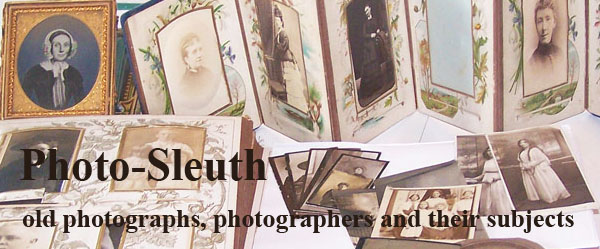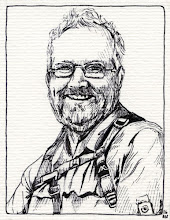
According to notes made by my father in 1959, from a discussion he had with Henry Payne's second son Charles Hallam Payne (1870-1960) the year before the latter died, Henry "came up to Normanton (where shop is in St James Rd) [from Grange Street, Litchurch] and curate wanted house building. Henry built this house but curate didn't come so he turned it into a shop and eventually got licence and ran the place."
Henry Payne is shown in electoral registers (extracts from the Derby Local Studies Library, by kind courtesy of Paul Slater) living in Grange Street and Alexandra Street, Litchurch until 1875. By 20 Jun 1876, when his eldest son Charles Vincent Payne (1868-1941) was enrolled at St Andrew's Middle Class School (St Andrew’s Middle Class School Admission Register, Derbyshire County Records Office, Matlock, Courtesy of Nigel Aspdin), their address was shown as St James' Road. Then on Thursday 27 September 1877, Henry was granted "an out-door beer license to premises in St. James'-road, New Normanton." (in The Derby Mercury, dated 3 October 1877, courtesy of a trial subscription to Gale Digital Collections Library). He presumably he built the premises around 1875.

Report in The Derby Mercury, dated 3 October 1877
Henry Payne left Derby with his family, by then including his wife Henrietta, sons Charles Vincent, Charles Hallam and Frank, and daughter Lucy Mary, in late 1877 and spent a few months living at Ash House, Turnditch, where it is possible that he built a new "infants classroom" at the National School. In August 1878, they returned to St James' Road, and the two older boys were re-enrolled at St Andrews Middle Class School, Litchurch. Henry had the off-license transferred back to his name on 8 October 1878 (in The Derby Mercury, dated 9 October 1878).
After a brief stint near Bladensburg in Maryland (United States), where he tried his hand at farming (described in a previous blog posting Coming to America and in a more lengthy article here), Henry and family were again living in the shop, at what was now referred to as number 38 St James' Road, by mid-November 1880. The census taken on 3 April the following year described Henry merely as a "grocer."

1881 Census record for 38 St James' Road, Normanton, Derby, Derbyshire
PRO Ref. RG11/3388/10/11/46 Image © & courtesy of Gale Digital Collections
The 1881/1882 Ordnance Survey map of Derby (scan of a photocopy in my father's collection, originally from the Derby Local Studies Library) shows only a few houses on St James' Road, but includes number 38, situated on the south-west corner of St. James' Road and Hastings Street.

1881/1882 Ordnance Survey Map of St James' Road, Normanton
Image © Derby Local Studies Library & courtesy of Bud Payne
On 30 June 1885 Henry submitted a Building Notice and Plan (No. 81) to the Derby Borough Council (acting as the Urban Sanitary Authority) notifying them of his intention to build "one living room attaching premises No. 38 St. James' Rd" for himself. Then on 19 July 1887 he inserted an advertisement in The Derby Mercury to the effect that he intended to apply for a license to sell "beer, wine, spirits, liqueurs (to be drunk on the premises) at a House and Shop situate at 38, St James'-road," at the next General Annual Licensing Meeting to be held on 1 September.

Advertisement in The Derby Mercury, dated 17 August 1887
The Annual Derby Borough Licensing (or Brewster) Sessions were, in due course, held on Thursday 1st September, and a report in The Derby Mercury dated 7th September described Henry's application, supported by a Mr. Briggs. It seems likely that this was William Briggs, a solicitor living at Evington House on the Stenson road (a later reference in The Derby Mercury in relation to a separate matter referes to Henry's solicitors, Messrs. Briggs, Clifford & Pinder). However, the application for a license encountered considerable opposition from several gentleman who lived or owned land in the neighbourhood, local vicars and churchwardens, and the St James' School Board, and it was refused. Henry tried again for a full license in August 1891, but it was similarly declined.

1891 Census record for 38 St James' Road, Normanton, Derby, Derbyshire
PRO Ref. RG12/2739/99/18/106 Image © & courtesy of Gale Digital Collections
In late 1893 or early 1894, presumably due to the large number of houses that had been constructed there in the previous couple of decades, the whole of St James' Road was completely re-numbered. This resulted in the Payne residence at number 38 (named by Henry prior to January 1891 as "The Hollies") becoming number 83, a confusing, but concidental, reverseal of digits. In June 1894, soon after their return from Chicago, Henry's eldest son Charles Vincent Payne, his wife Amy Payne (1867-1932) and infant son Charles Leslie Lionel Payne (1892-1975) - my grandfather - moved into the house and shop on the corner of St James' Road and Hastings Street. Henry and his wife Henrietta (1843-1914) moved to a new, and larger house, which he had built in late 1893 at the western end of St James' Road, number 139, also named "The Hollies."

"Elevation next St James' Road," 139 St James' Road, Normanton, Derby, Derbyshire, from Building Notice & Plan No. 205, submitted by Henry Payne to the Borough of Derby on 10 July 1893, according to the Public Health Act, 1875.
© the Derby Local Studies Library & courtesy of Angela Hercliffe
Charles Vincent, or Charlie as he was known to his family and friends, only lasted two years in the beer-selling business (Kelly's 1895 Trade Directory shows him as a "builder and beer retailer"), before deciding that his younger brother was better suited to the trade than he was. On 11 February 1896, the license was transferred to Charles Hallam Payne (The Derby Mercury, dated 12 February 1896), and Charlie moved across the road to the house at 17 Hastings Street, previously occupied by Hallam, from where he worked as an estate agent.

1901 Census record for 38 St James' Road, Normanton, Derby, Derbyshire
PRO Ref. RG13/3223/116/6/36 Image © & courtesy of Gale Digital Collections
"Uncle Hallam" and his wife Sarah (1870-1946) were to remain at number 83 for almost two decades, as indicated by electoral registers, trade directory entries and census records. A 1901 Ordnance Survey map of St James' Road shows it completely built up.

1901 Ordnance Survey Map of St James' Road, Normanton
Image © Derby Local Studies Library & courtesy of Bud Payne
In December 1903 Hallam made an application to build "1 New W.C." at the back of the house, as shown in the two attached plans.

Plan showing location of "1 New W.C." built by Hallam Payne at 83 St James' Road after 9 Dec 1903

"1 New W.C." built by Hallam Payne at 83 St James' Road after 9 Dec 1903
Images © Derby Local Studies Library & courtesy of Angela Hercliffe
It is possible that this outhouse still exists, as there appears to be a small building in the exact location in the current garden of number 83. The "stable" building marked on the full version of the plan shown above can also be seen.
View Larger Map
Although the photograph included at the head of this article is undated, the age of my grandfather Leslie Payne appears to be about 16, suggesting a date of around 1908. My father wrote the following a few years ago:
[Uncle Hallam] seems to have run the off-licence until some time in 1914 - I have a beer order postcard of that year bearing his name.
Click image to see front of card
Dad worked for him as a delivery boy after leaving school and before going to Canada in 1912 ... During World War I, Hallam’s youngest brother Fred took over the business: his initial appears on a circular advertising customers that he was ‘delivering Hardy’s Famous Starbright Ales (in Bottle) again’, citing a provision of the Defence of the Realm Act which required payment before delivery, instead of ‘the Carter receiving payment on delivery, as before.’ Use of a capital for Carter makes me think that about 1914 the business employed an outsider to deliver the goods, although a few years earlier CHP had his own horse and dray. An undated photo shows this equipage standing outside the shop, driver aloft holding the reins, Uncle and Auntie standing in the open doorway, Auntie in a long apron ...
... as are the woman assistant (member of the family?) on her right and my Father on her left, with his hand on what looks like a 3-wheeled forerunner of today’s supermarket trolley (a skip?).
Dad looks to be about 16 or so, not much taller than his uncle, I put the date at c. 1908. He never told me how long he worked for CHP, but he believed that his big hands developed as a result of carrying quart bottles by the neck, so he must have been there a few years. ‘Sprout picker’s hands’ they used to call them in the Vale of Evesham. But CHP also had big hands - from handling jack planes in Chicago? Uncle was already bald, and Auntie’s paunch was becoming prominent when the picture was taken, but their sleeves were rolled up and they must have worked hard to retire at such an early age - he was about 44. Great Uncle Fred and his family: wife Rachel, sons Clarence and Harry, daughter Christine, carried on the family business until it was sold in 1956.

83 St James' Road in 1987, Image © & courtesy of Diana Burl
The premises were still used as a corner shop when my sister photographed them for my father in 1987, albeit they then sold curry powder as well as Kimberley ales. The firm named Hardy, of Kimberley in Nottinghamshire, amalgamated with Hansons Limited in 1930. Hardy & Hanson's Starbright was still being brewed as late as February 2006, and according to Wikipedia the Kimberley Brewery, then the last independent one in Nottinghamshire, was sold to the Greene King brewery in 2006.

Paul Slater in January 2000, and Nigel Aspdin in April 2008, have very kindly sent me photographs of the shop at number 83, illustrating the gradual and rather sad deterioration of the shop over the last two decades. Although the house is obviously still lived in and looked after, the shop hasn't been operated as such for many years.

83 St James' Road in January 2000, Image © & courtesy of Paul Slater

83 St James' Road in April 2008, Image © & courtesy of Nigel Aspdin











No comments:
Post a Comment